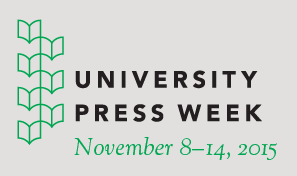Editor’s Note: Today’s post is by Alan Harvey. Alan has been the Director at Stanford University Press since 2012, having joined the Press in 2002 as Editor-in-Chief. Prior to Stanford, Alan worked for Cambridge University Press as Executive Editor for the Sciences.
Academic publishing has been my life for over thirty years. I started at Cambridge University Press straight after a postdoc then moved to Stanford University Press in 2002. I’ve experienced plenty of turbulence in the sector over that time, but the situation we’re all faced with now post-pandemic is of a different order. However, although presses certainly face challenges, there is also hope and opportunity. For me, the key is to think differently.
I grew up in the English school system and went on to study mathematics. From a young age, the subjects I struggled with the most were English Language and English literature. Although I went on to get good grades, writing didn’t come naturally to me as a boy. While there’s a certain irony that I’ve gone on to work with words every day and lead a publisher of outstanding books, my early experiences have left me with a deep appreciation of quality scholarship and writing. I know how hard it is to write well and produce a narrative that really captures the reader’s attention.
I’m lucky that my team at Stanford shares this appreciation too. It’s this that keeps us motivated and helps us to think differently about how we should operate as a business especially when times are tough.

The storm gathers
Before the pandemic there were already many pressures on the university press sector. Trade books were struggling and people were changing how they bought non-fiction. Libraries were consolidating their collections and slimming down their budgets. Many had already started to reduce the numbers of scholarly monographs they bought.
The pandemic has exacerbated all of these pressures. Let’s take the example of monographs. When I first started in publishing, we could consistently sell over 1,000 copies of a monograph – mainly to libraries, but also to faculty and scholars. But over the years, that number steadily dwindled to 800, then to 500 then to 400 copies.
Supporting publication of those titles for us was just about possible, but the pandemic has seen libraries change their buying habits even further. Many libraries have shifted their priorities away from buying print monographs entirely and digital content has become increasingly important. This has led us to consider how we can best support titles that sometimes can sell just a few hundred copies.
Focusing on selling eBooks to libraries and institutions seems like a logical reaction given this situation, but the reality of achieving this when your internal systems have for the past century or more been set up as a publisher of print books poses a problem. Maintaining and developing the infrastructure to host and distribute eBooks comes with many challenges and costs and it is not something we can maintain on our own.
Adding value
While a storm is gathering, some presses will be able to ride it out better than others. We are not a homogenous sector. Funding models and business models will make all the difference. So, what are our plans?
Perhaps it’s because we’re situated in the heart of Silicon Valley, but we see adversity as an opportunity to experiment, try something new, and think differently. We will respond by innovating and focusing in on what we do best: providing value to the author and reader.
While I fully understand the temptation to sign more books as a way to bring in more revenue, we are doing the reverse.
Together with my editor-in-chief, we decided to focus on quality, not just quantity. Bucking the trend of many in the university press sector, we now give many of our editors lower acquisition targets than we used to so they can spend more time working with the author to strengthen their books. A smaller number of higher quality books will make more money in the long term – and is a strategy that’s working.
It’s working financially, but for us, but it’s also working in terms of our mission and values. We want to engage with the author and increase the impact of their books. One of our roles is to help make their work into something that the reader wants to read – and it’s hugely gratifying when I see this happening.
Focusing on scholarship
There’s also the temptation when times are tough to focus only on the areas of the business that make the most money – but as a publisher of high-quality scholarship, I see this as being a short-sighted approach.
For example, if we continue to make business decisions along traditional lines of how many units are sold, then yes, supporting some books and monographs isn’t sustainable. However, if we look at our business in the round, think more laterally and consider rights revenue and licenses and come up with a consolidated package, then these essential areas of scholarship can be supported.
We’re also taking a fresh approach to how we work with other publishers. To forge a future, we must go beyond only thinking of other publishers as ‘the competition’. We all have different strengths and we believe that collaboration with peers and partners can bring real benefits.
Community in tough times
One example of how we are doing this is our work with fellow academic publisher De Gruyter. By participating in their Publisher Partnership Programme, we are building far more collaborative working relationships with university libraries across North America. As a university press with no in-house sales team, becoming closer to our key partners has been transformative. It means that we can offer our entire archive digitally for the first time.
This is a win all round. Libraries benefit because they receive our entire collection – it’s something they want and this was a significant differentiator for us. We benefit because we receive a consistent revenue stream. Indeed, after just a year of sales, our relationship with De Gruyter now accounts for 20% of our income – rivaling our Amazon sales.
But most importantly, authors, readers, and scholarship benefits more broadly because it means that we can make our titles available to a larger number of readers around the world while continuing to support less profitable areas of the business. Producing scholarly monographs has been at the heart of Stanford’s publishing ethos since 1892 – this partnership will help to ensure we can continue.
First principles
While every university press must make the business decisions that are right or them, our approach at Stanford is to focus on the value we bring to our authors and so, to our readers. That way we will better serve the scholarly community and continue to publish creative and sophisticated scholarship that is admired around the world. This is how I believe we will weather the storm.
Discussion
5 Thoughts on "Guest Post — In Tough Times the Key is to Think Differently"
I recently listened to Alan’s excellent interview on the New Books Network discussing “profitability and university press publishing” (https://newbooksnetwork.com/profitability-and-university-press-publishing-a-discussion-with-stanford-ups-alan-harvey) and this post reinforces his role as an important thinker in the university press space. As he notes, university presses are very diverse, and strategies reflect institutional priorities. Ebook revenue and the quest for profitability loom large at Stanford, a private university with a strong commercial orientation. This is not the measure of success for all university presses: At Michigan, we focus on openness and digital scholarship, for example. That mirrors the priorities of our public research institution. Neither approach is “wrong.” But the contrast is a good reminder that if you’ve seen one university press, you’ve seen one university press.
Thanks for your comment (and compliments), Charles. I agree that all Presses are rather unique. I do, however, need to challenge your presumption that as part of a private institution Stanford University Press is on a “quest for profitability”. In our 131-year history, to the best of my knowledge SUP has never once “turned a profit”. Our archive has impassioned letters from my predecessors dating back 100 years that outline why it is impossible to cover the costs of producing scholarly books through sales alone. I am proud to have a university administration that sees the benefit of scholarly communication and thus generously supports the Press. As such, I see my task as one of a responsible steward of university resources. The phrase “less-profitable” is a red herring here. None of it is “profitable” in the traditional sense of the word. Sustainability is my goal, and for all of us that requires careful management of our resources to best align with the needs of the university and the broader community.
I’m glad for your gracious comment here, Alan, as I have been worrying that mine sounded snippy since posting it (indeed, it was). I was caricaturing our parent institutions in a way that doesn’t acknowledge that Stanford and Michigan are both good supporters of our presses. The truth is that fewer than 100 institutions in North America have stepped up as the parents of university presses. Together they make sure infrastructure is available to support all authors across the full range of humanities and qualitative social sciences. I should celebrate all of them rather than fall into the trap of institutional rivalry. We’re all in this together. Also, it is clear from Stanford’s impactful and important list that you are an exemplary steward of both resources and editorial quality. And you express the importance of that responsibility for all of us press directors very well.
“[W]e see adversity as an opportunity to experiment, try something new, and think differently”; precious insight into the mindset behind sustainable publishing from this Alan Harvey article.
Nice piece Alan!



